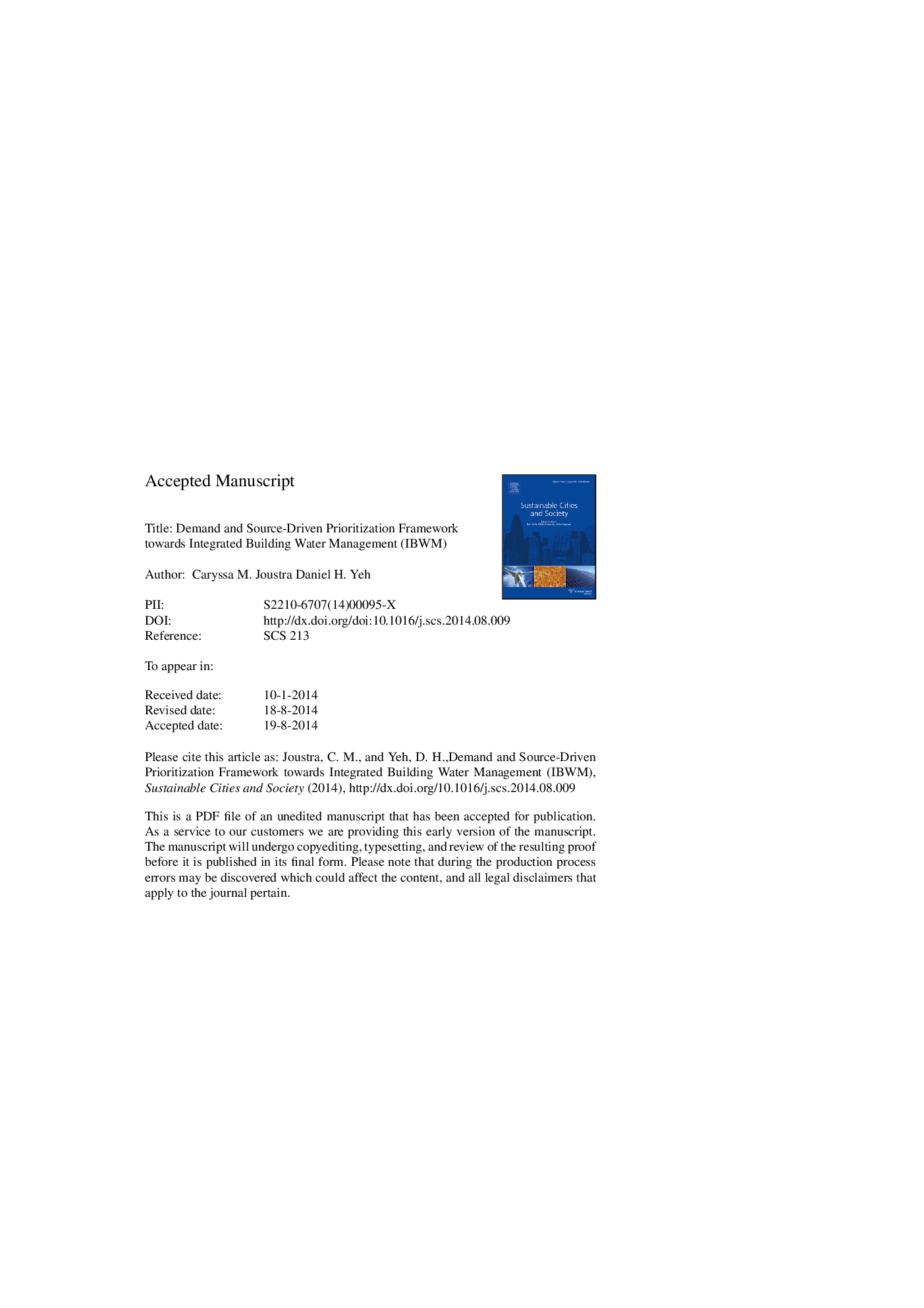| Article ID | Journal | Published Year | Pages | File Type |
|---|---|---|---|---|
| 6776561 | Sustainable Cities and Society | 2015 | 42 Pages |
Abstract
Historically, the building industry has taken a somewhat compartmentalized approach to water management. The use of alternative water sources (e.g., rainwater, municipal reclaimed water, air conditioning condensate, or stormwater) or the reuse of wastewater (gray or black) significantly complicates the water budget picture. A total water management systems approach, taking into consideration water from various sources, both inside and outside the building, should be implemented in order to devise a strategy for optimal reduction of potable water consumption and wastewater generation. A building water cycle is complicated by nonlinearity introduced by water recycling, necessitating prioritization. A prioritization framework for the support of integrated building water management (IBWM) is presented. The framework is developed by prioritizing both water demands and supplies, recognizing that there are tradeoffs among water usage, energy requirements, and costs based on changes in water quality. The resulting algorithm successfully produces dynamic output water profiles based on three scenarios (constant, residential, and commercial) utilizing the prioritization framework. The ability of the algorithm to track water allocation and potable water reduction is tested using scenarios applied to a hotel building water cycle. Evaluation of multiple water demands and sources at varying temporal scales validates the framework's flexibility.
Keywords
Related Topics
Physical Sciences and Engineering
Energy
Renewable Energy, Sustainability and the Environment
Authors
Caryssa M. Joustra, Daniel H. Yeh,
